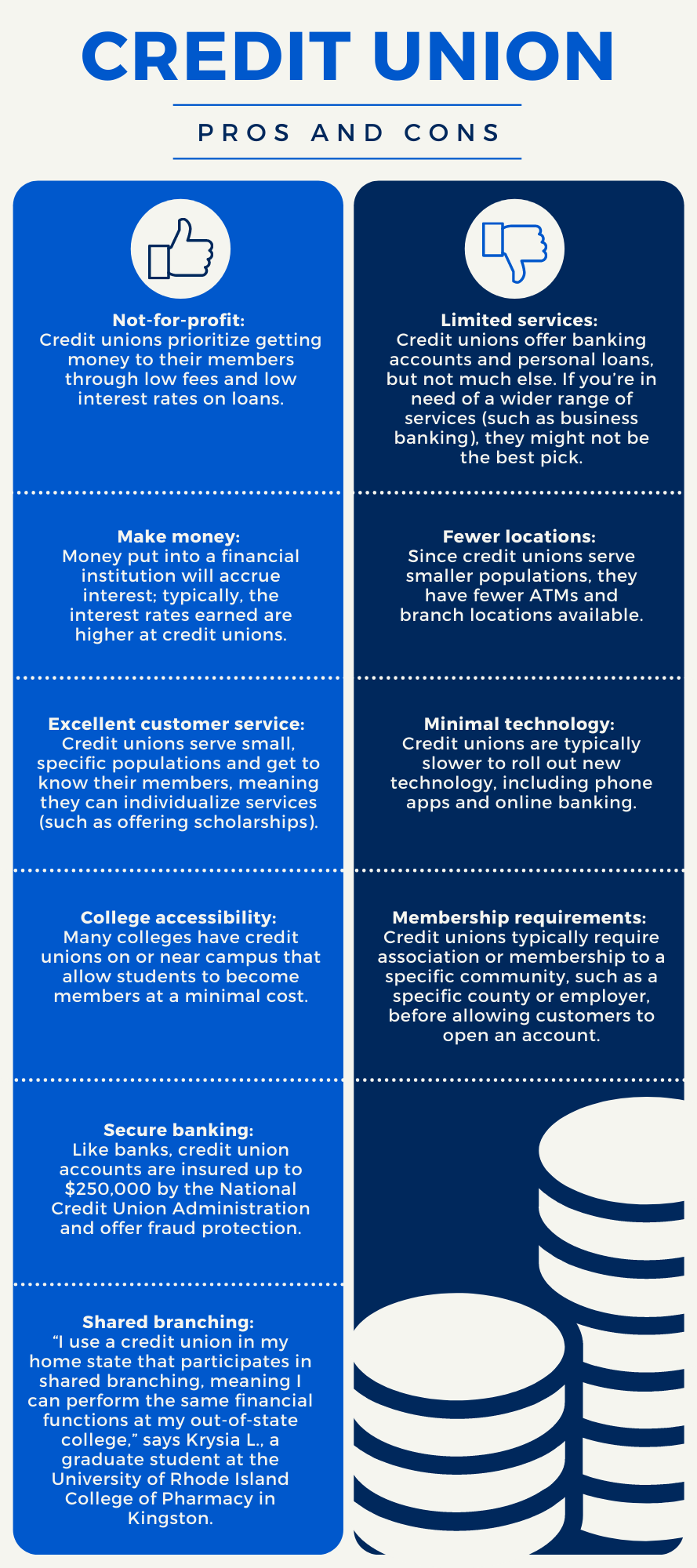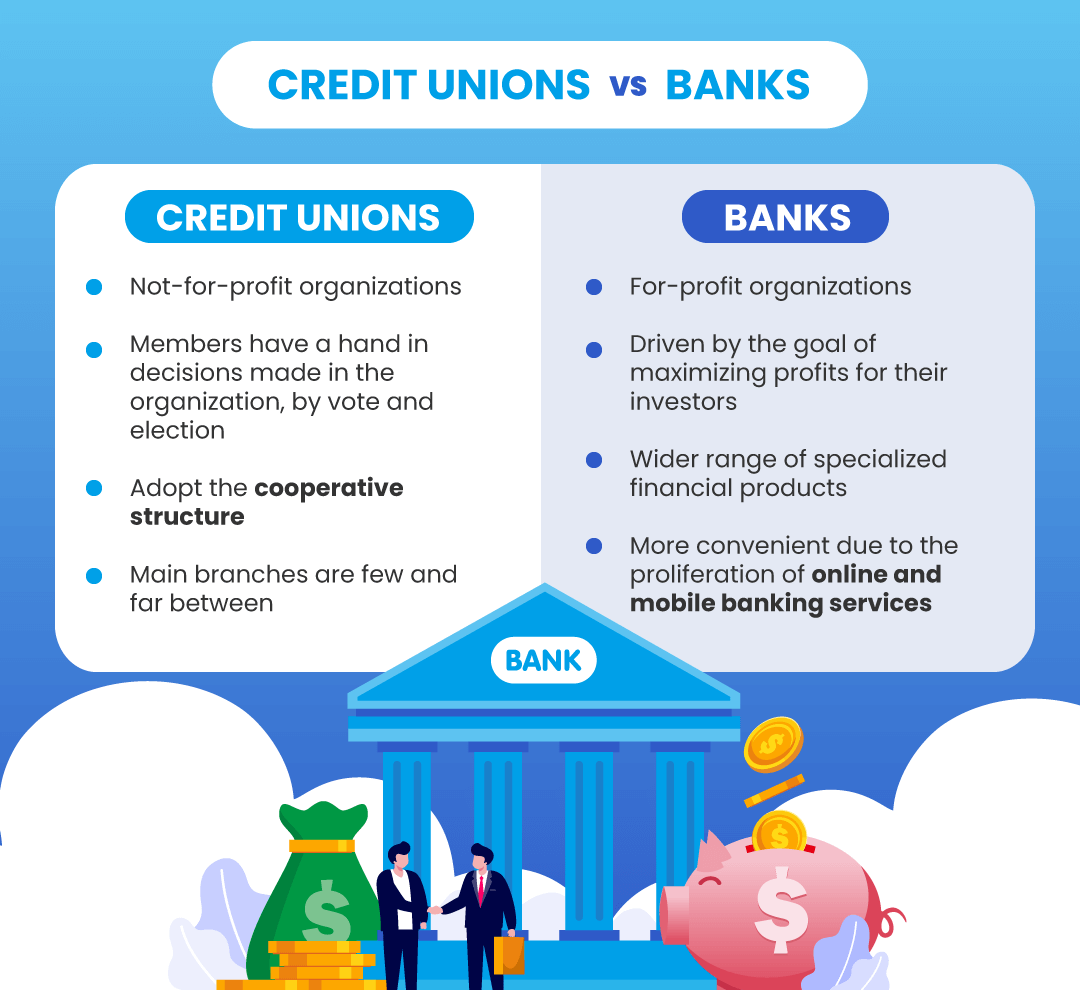Hybrid Line of Credit: Flexible Financing Options from Your Wyoming Credit Union
Hybrid Line of Credit: Flexible Financing Options from Your Wyoming Credit Union
Blog Article
The Ultimate Guide to Comprehending Lending Institution
Credit unions stand as distinct monetary entities, rooted in principles of common assistance and member-driven procedures. As we browse via the ins and outs of debt unions, an informative trip waits for to drop light on these member-focused establishments and exactly how they vary from standard financial institutions.
What Are Debt Unions?
Lending institution are member-owned banks that provide a variety of banking solutions to their participants. Unlike standard financial institutions, credit unions operate as not-for-profit organizations, implying their main focus gets on serving their members as opposed to optimizing earnings. Participants of a lending institution normally share a typical bond, such as helping the exact same employer, belonging to the very same community, or being component of the exact same organization.
Among the crucial benefits of credit rating unions is that they often supply higher rates of interest on interest-bearing accounts and reduced rate of interest on loans contrasted to banks. This is since lending institution are structured to profit their members straight, permitting them to pass on their revenues in the type of far better prices and less charges. In addition, cooperative credit union are known for their customized consumer solution, as they prioritize developing relationships with their members to understand their one-of-a-kind economic needs and objectives.
History and Development of Lending Institution

The roots of member-owned financial cooperatives, recognized today as cooperative credit union, trace back to a time when areas sought choices to traditional financial establishments. The idea of credit history unions come from the 19th century in Europe, with Friedrich Wilhelm Raiffeisen usually attributed as the pioneer of the participating financial movement (Wyoming Federal Credit Union). Raiffeisen started the initial acknowledged debt union in Germany in the mid-1800s, stressing community assistance and self-help concepts
The development of lending institution continued in The United States and copyright, where Alphonse Desjardins developed the first credit rating union in copyright in 1900. Quickly after, in 1909, the first united state cooperative credit union was formed in New Hampshire by a team of Franco-American immigrants. These early credit score unions run on the essential concepts of mutual help, autonomous control, and participant ownership.
With time, lending institution have expanded in popularity worldwide because of their not-for-profit framework, focus on serving members, and using affordable financial services and products. Today, cooperative credit union play a vital role in the financial market, providing community-oriented and available banking options for individuals and services alike.
Subscription and Qualification Requirements
Subscription at a credit score union is usually restricted to people satisfying specific qualification criteria based on the establishment's starting principles and governing demands. Some credit scores unions might only offer individuals that function or live in a particular location, while others may be customized to workers of a particular company or participants of a particular organization.
Additionally, cooperative credit union are structured as not-for-profit companies, meaning that their main objective is to serve their members instead than generate revenues for investors. This concentrate on participant service typically converts into even more personalized attention, lower costs, and competitive interest prices on financial savings and car loans accounts. By fulfilling the eligibility standards and becoming a member of a credit union, individuals can access a series of economic products and services tailored to their certain demands.
Services and Products Provided
One of the key facets that sets credit report unions apart is the diverse range of economic services and products they provide to their participants. Credit score unions usually provide typical banking solutions such as savings and examining accounts, fundings, and credit scores cards.
In addition, credit score unions frequently give convenient online and mobile financial alternatives for members to quickly manage their funds. They may provide rewards such as shared branching, enabling participants to access their accounts at other cooperative credit union throughout the country. Some lending institution additionally supply insurance policy items like home, automobile, and life insurance to help members safeguard their assets and liked ones.
Along with economic solutions, credit unions frequently take part in neighborhood outreach programs and monetary education and learning initiatives to sustain their participants in achieving their economic Federal Credit Union objectives.
Benefits of Financial With Lending Institution
When thinking about financial organizations, discovering the advantages of banking with credit score unions exposes one-of-a-kind advantages for members seeking individualized solution and affordable rates. Unlike huge banks, credit history unions are member-owned and prioritize building solid partnerships with their participants. Overall, banking with a credit score union can provide a more personalized, affordable, and member-centric economic experience.
Verdict

Credit rating unions are member-owned monetary organizations that supply an array of banking solutions to their members. The concept of credit score unions stem in the 19th century in Europe, with Friedrich Wilhelm Raiffeisen often credited as the pioneer of the cooperative banking activity.The evolution of credit report unions continued in North America, where Alphonse Desjardins developed the very first debt union in copyright in 1900. Credit scores unions usually give typical financial solutions such as cost savings and inspecting accounts, financings, and credit cards.When considering financial institutions, exploring the benefits of financial with credit report unions exposes special benefits for members looking for tailored solution and competitive rates.
Report this page